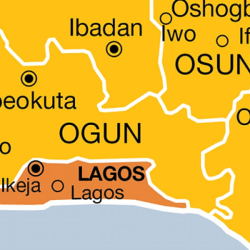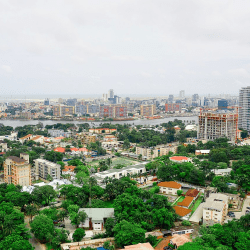Epe is part of Lagos city and a Lagos state’s administrative division alongside others, namely: Ikeja, Badagry, Ikorodu and Lagos (Eko)

LGAs
Epe, Ibeju-Lekki
LCDAs
Lekki, Ikosi-Ejirin and Eredo
Communities
Epe, Orugbo-Iddo, Agbowa-Ikosi, Ilara, Odo-Ayandelu, Odoragunsin, Igbooye, Naforija, Igbodu, Ejinrin, Poka, Itoikin, Idotun, Ita-Oko, Omi, Temu, Ise and Debojo. Others are Apawa, Aba-Titun, Abomiti, Afere, Apakin, Abalaye, Origanrigan, Kayetoro Eleko, Yeunda, Okunraye, Keta, Arapagi, Aiyeteju, Okun-Folu, Osoroko, Olomowewe, Ibeju, Lekki, Akodo, Otolu, Magbon-Alade, Oriba, Iwerekun, Iberekodo, Idado, Okun Igando-Orudu, Tiye, Awoyaya, Ote-Omi, Bogije, Siriwon, Idaso, Orimedu, Olorunkoya, Ojota, Ode-Ifa, Ofin, Igbesibi and Igbolomi, among others.
Epe is made up of two Local Government Councils, namely: Epe, Ibeju-Lekki while the three Local Council Development Areas are: Lekki, Ikosi-Ejirin and Eredo with Epe serving as the divisional headquarters. It lies about 89kms north-east of the City of Lagos.
Urakaloye was the man said to be the ancestral founder of Epe, a name derived from black ants, which invaded Urakaloye’s hunting homestead. Hence, the town’s name, Epe, means the forest of black ants.
Epe Division consists of Epe, Orugbo-Iddo, Agbowa-Ikosi, Ilara, Odo-Ayandelu, Odoragunsin, Igbooye, Naforija, Igbodu, Ejinrin, Poka, Itoikin, Idotun, Ita-Oko, Omi, Temu, Ise and Debojo. Others are Apawa, Aba-Titun, Abomiti, Afere, Apakin, Abalaye, Origanrigan, Kayetoro Eleko, Yeunda, Okunraye, Keta, Arapagi, Aiyeteju, Okun-Folu, Osoroko, Olomowewe, Ibeju, Lekki, Akodo, Otolu, Magbon-Alade, Oriba, Iwerekun, Iberekodo, Idado, Okun Igando-Orudu, Tiye, Awoyaya, Ote-Omi, Bogije, Siriwon, Idaso, Orimedu, Olorunkoya, Ojota, Ode-Ifa, Ofin, Igbesibi and Igbolomi, among others.
A peculiar feature of Epe is the presence of a long range of hills, which demarcates the coastal town into equal parts. However, in Ibeju-Lekki, artisanal fishing, sandy beach and coconut fringed Atlantic coastlines are distinctive features of the environment which has enormous tourism potentials.
Fishing and farming form the major occupations of the inhabitants of the Division, which also includes the Eko Aworis.
Reference
lagosstate.gov.ng


